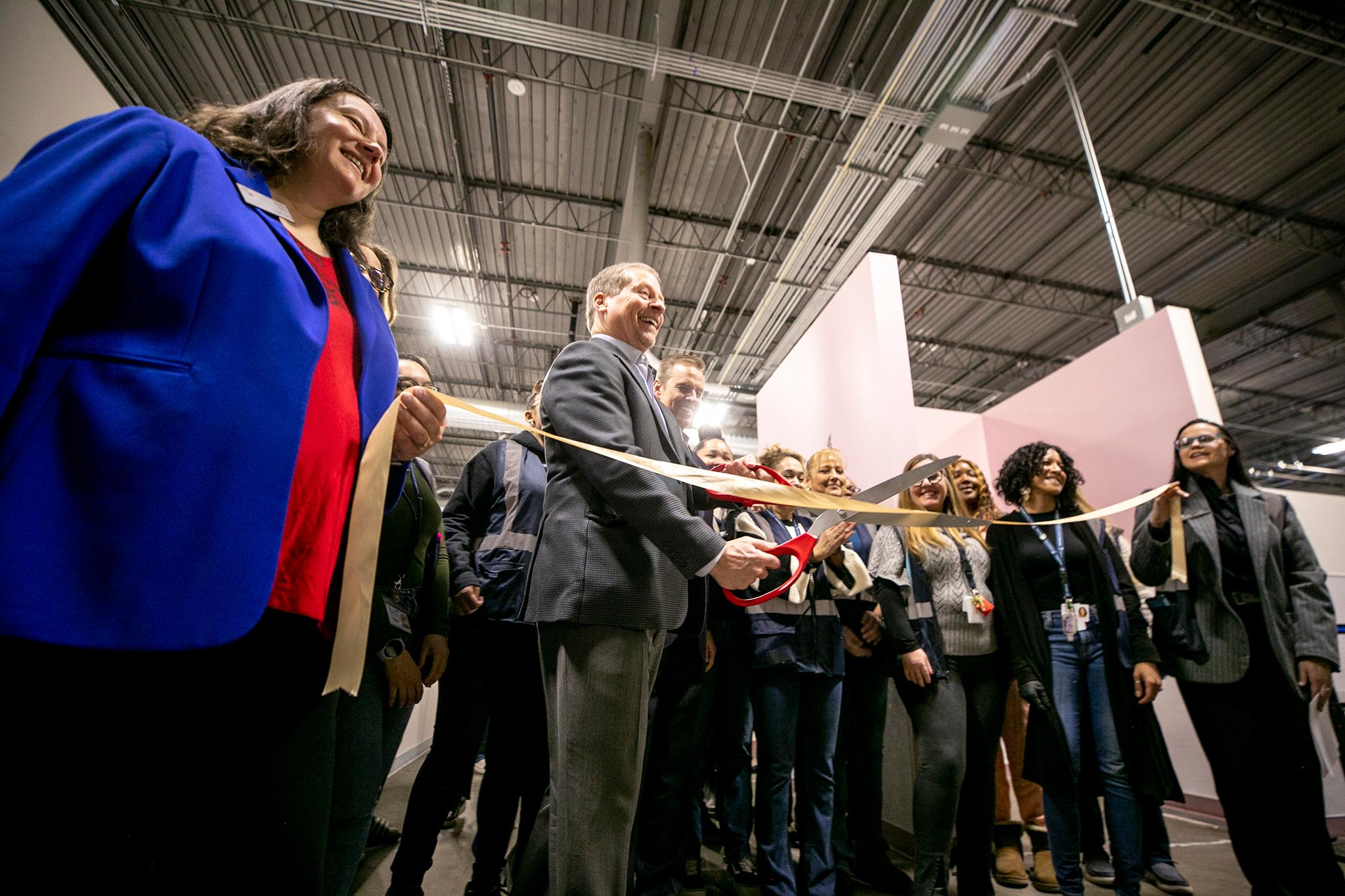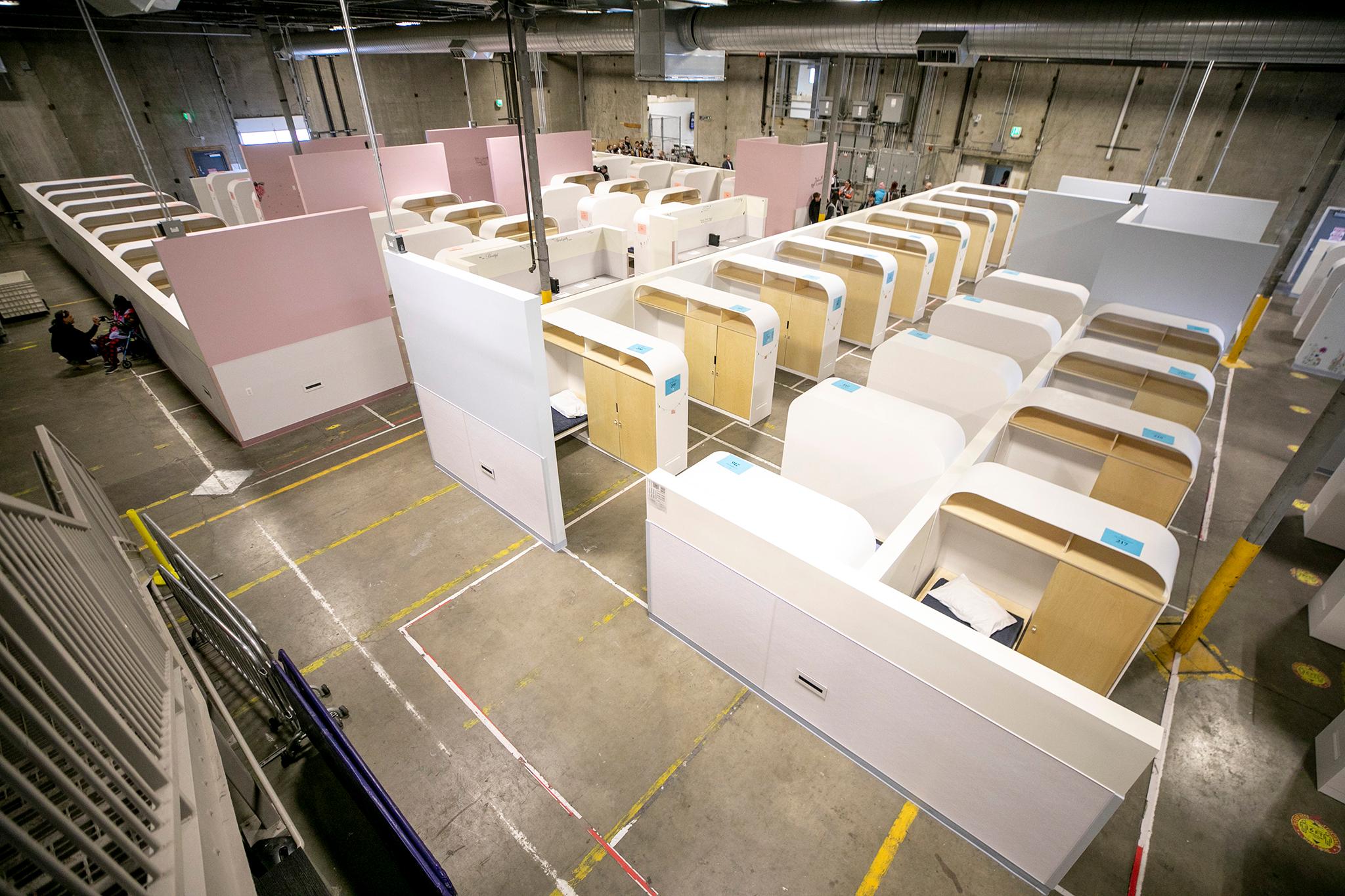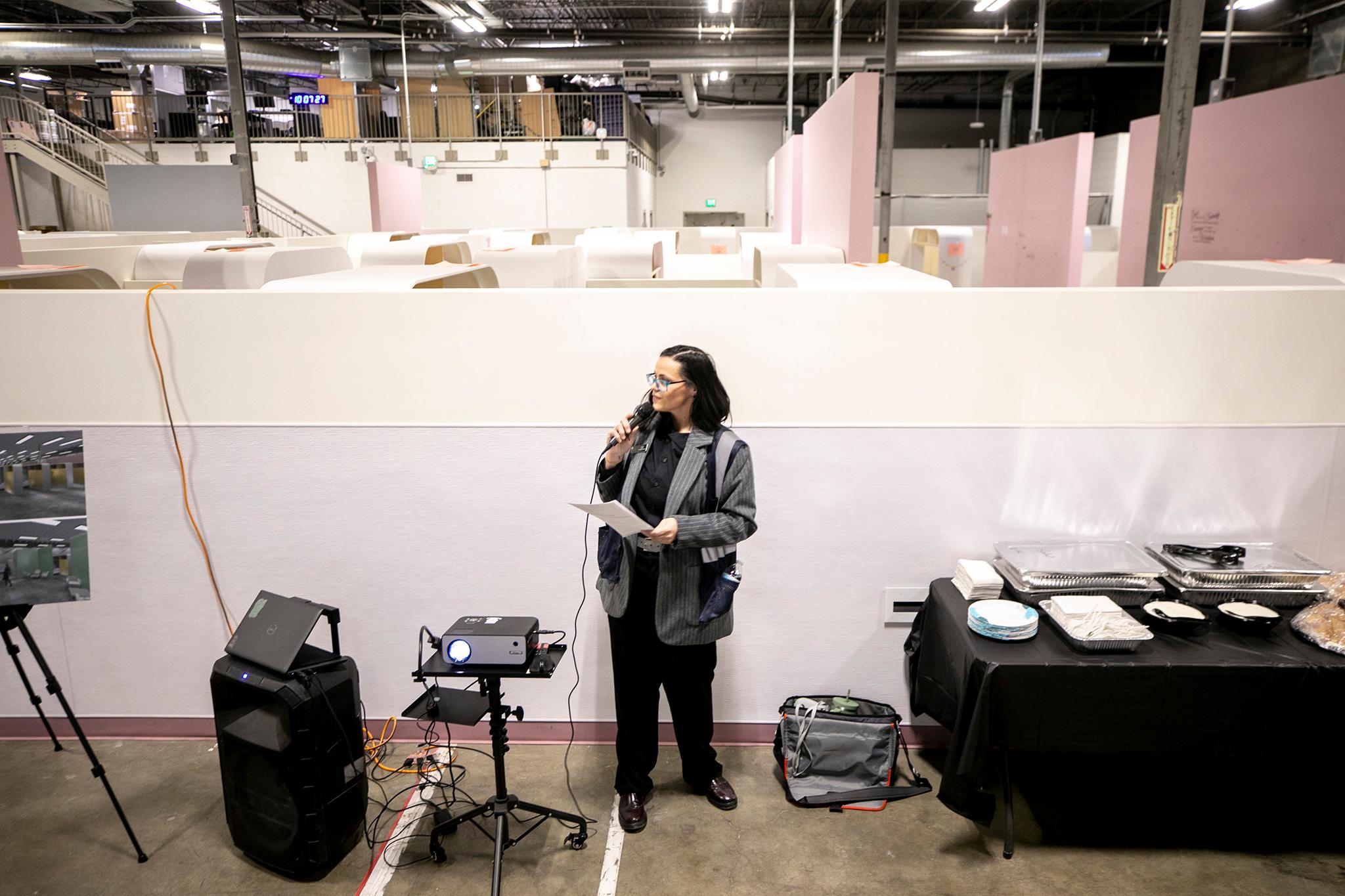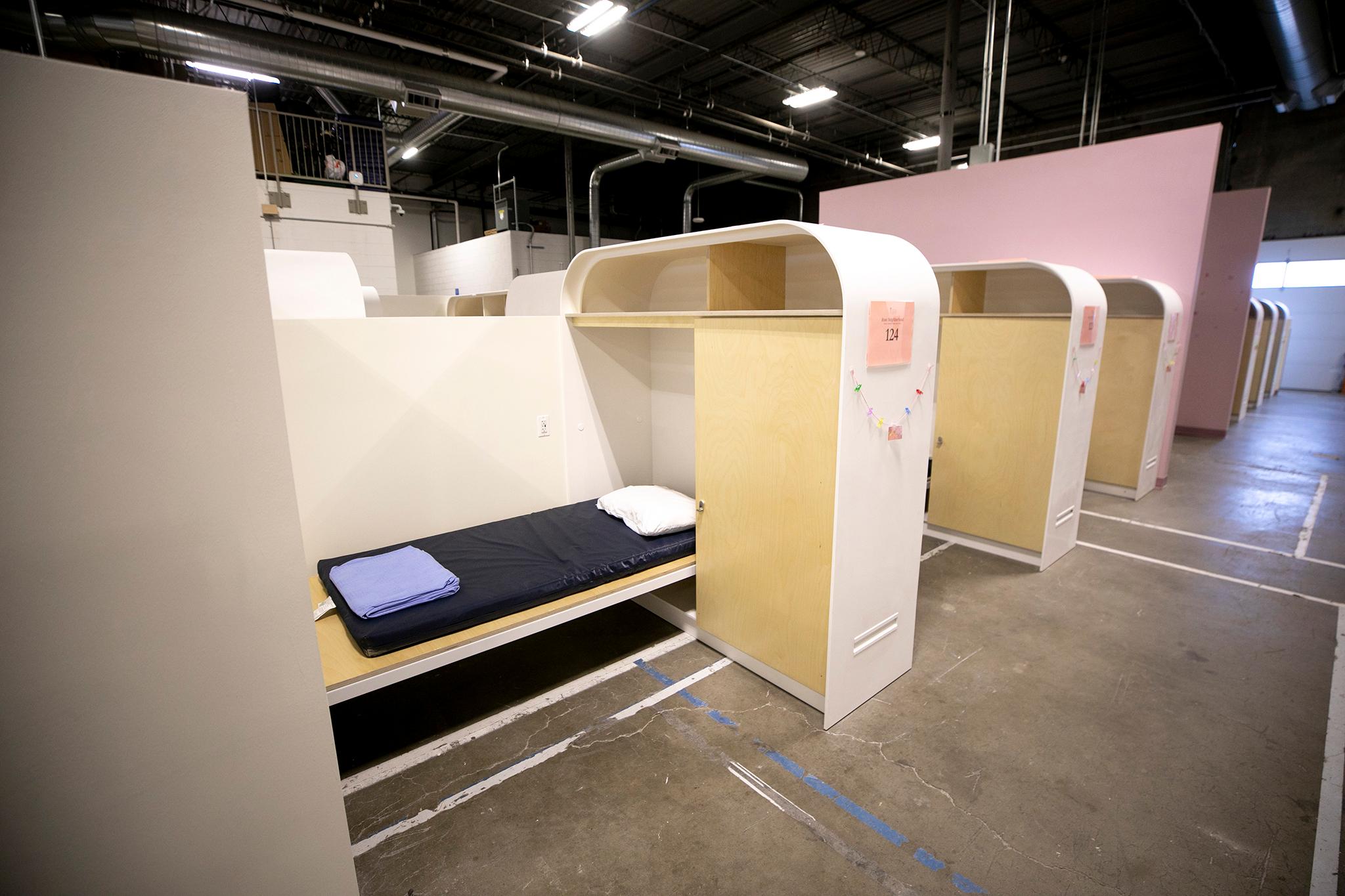As the city looks to improve its existing sheltering system and make the facilities more comfortable, Catholic Charities of Denver has unveiled how one-way congregate shelters can transform into semi-private spaces.
The Catholic Charities shelter Samaritan House at 48th Avenue has added 97 private modular sleeping areas to the facility, providing residents with their own spaces and a little bit of privacy.
"Today we're moving 97 women into the first phase of our completed project," said Eli Allen, the director of strategic initiatives for Catholic Charities. "These are more than just structures. They represent symbols of hope, dignity and progress. For too long, emergency shelters have been living in challenging spaces, ranging from mats on the floor, to bunk beds with very little amenities or supportive services ... Our vision is a future where every individual in our shelter has access to safety, security, and a dignified emergency shelter experience."

Samaritan House, in Northeast Park Hill, is one of the city's largest shelters that specifically serves women. The shelter can serve about 270 people and they perform walk-up intakes daily.
Allen said Samaritan House is a congregate shelter. That means initially, the large warehouse had camping cots lined up next to each other, giving residents no space of their own.
The new sleeping areas are semi-private cubes that come with a bed, a lockable wardrobe, electrical outlets and aisle lighting. Three sides of the space are walled in, giving residents more privacy.
The sleeping areas are also modular, which means they can be moved around or reconfigured if the shelter needs to do a bit of reorganizing.
Besides the sleeping sections, the modular units also form spaces where residents can lounge on couches for even more comfort. The facility also added new restroom and shower facilities as well as a medical services center.
Samaritan House also provides transportation services for residents needing to meet with their case workers or other services.

The renovations are a part of the city's efforts to make the sheltering system more accessible and appealing to those experiencing homelessness. The goal is to create a space that can feel personalized, as opposed to people feeling like they're in a warehouse full of other bodies.
Many shelters are now operating at a 24/7 model as opposed to overnight. The new semi-private spaces are a way to make residents feel safer and, frankly, more human.
"We do recognize that when you move into a shelter, you lose your freedom in some ways because we do have some expectations and basic rules in order to keep the community well-being and hazard-free," Allen said. "We do know that for some people living outside is more appealing at times than a shelter ... We want to try to make it someplace that people feel like they can come, but they also know that there is a goal to live in a community environment. We do think that this will drive some more interest in coming inside because it does have a more dignified feeling."
This is the first phase of the project, Allen said. Before the end of the summer, the rest of the modular units will be installed, and Samaritan House will have a total of 270 semi-private sleeping rooms.

The city used about $3.4 million from the federal Community Development Block Grant to fund the renovations.
Allen said she's hoping the city can continue looking for and implementing new ways to improve shelters and ensure that those in need feel like they are safe and can move on to find permanent housing.
"I think historically it's been kind of run in a way that is just to meet the most bare minimum needs in the moment and this is a step forward in progress to elevate our emergency shelter," Allen said. "We recognize that it's still an emergency shelter. It's still low barrier but we're hoping that our participants value the space as much as we do."













